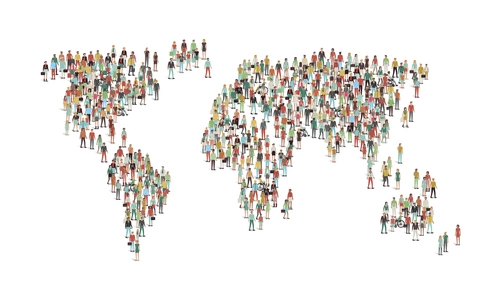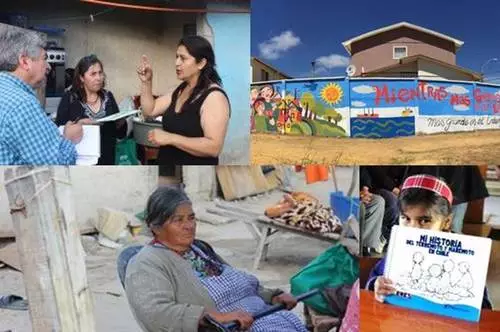1. Select a discrete app icon.

notes
Around the World: England, Thailand and Mexico in the News
From blunt knives as a possible deterrent, to smoking as a form of violence—this is what’s happening here and abroad
- Sep 16, 2019

From one side of the globe to the other, domestic violence is a rampant, epidemic issue. A third of all women worldwide who have been in a relationship report experiencing physical or sexual violence from a partner, according to the World Health Organization.
Below is a selection of domestic violence headlines from both here in the U.S. and far away that have caught our attention.
Less Sharp Knives for Abusers in England
In a city known best, perhaps, for a charming history that includes Robin Hood, Sherwood Forest, romantic poet Lord Byron and something called the Goose Fair that’s been happening annually since 1284, Nottinghamshire stirred up a bit of controversy of late when it proposed a less than ideal “solution” to domestic violence crime: blunt knives. The police force proposed replacing sharp knives in the homes of domestic violence survivors with ones that had blunt points, hoping this would reduce the number of stabbings by violent partners. Knife-related violence makes up 17 percent of the domestic violence calls the English country deals with.
Not surprisingly, advocates and others immediately pointed out the ludicrousness of the proposal which fails to hold abusers accountable for their crimes, but rather puts the onus to survive violence on the victim. Furthermore, it was pointed out that a blunt knife can still cause bodily harm, and that abusers will often use more than just a knife to attack a partner.
The not-so-favorable reaction led to Nottinghamshire police rethinking their plan. “It’s just a very early idea and may not ever be rolled out,” they told media.
Smoking = Violence in Thailand
In Thailand, smoking indoors near your family became a domestic violence offense on Aug. 20. This radical new law comes on the heels of the East Asian country announcing its goal of reducing tobacco use by at least 30 percent by 2025. Some 400,000 Thais die every year as a result of smoking-related diseases. In the U.S., 480,000 deaths are reported yearly as a result of cigarettes, but Thailand’s population is only one-quarter that of the U.S.
Dr. Ronnachai Kongsakon, director of the Tobacco Control Research and Knowledge Management Centre in Thailand, told press that nearly 5 million homes in Thailand have smokers, resulting in 10 million individuals exposed to second-hand smoke. Infants exposed to second-hand smoke are twice as likely to die from sudden infant death syndrome and the risk factor as children of developing bronchitis or pneumonia dramatically increases.
Despite an outcry on social media from Thais who say the law is an attack on their civil liberties, the new legislation states that smoking at home can be harmful to health and therefore is an act of violence toward others living under the same roof. The law allows people to report to the authorities if they know of a child exposed to second-hand smoke, and courts could force smokers to undertake a smoking cessation program.
Mexico Wants to Cut Funding for Shelters
When Mexican President Andrés Manuel Lòpez Obrador took office last December, he vowed to cut “excessive government spending”—and that includes funding domestic violence shelters. The Mexican government announced plans to support victims of domestic violence not by funding emergency shelters but by giving funds directly to survivors of domestic violence, though it was not clear how that would work. Advocates were quick to point out the potential pitfalls of the proposed plan.
“[The president] doesn’t realize (or doesn’t care) that women are often put in danger when they receive cash in hand,” tweeted Regina Tames, the director of Gire, a human rights organization in Mexico. “We know of many cases where their violent partners, neighbors and even their parents beat them to take the money from government programs.”
The funding cuts would affect not only emergency shelters for survivors of domestic violence, but also those for victims of human trafficking. The National Human Rights Commission estimates there could be as many as 500,000 trafficking victims in Mexico, from sex workers to those forced to work with drug gangs.
Arizona Police Officer Helps Change Tire for Survivor
Donate and change a life
Your support gives hope and help to victims of domestic violence every day.
Finally, a bit of good news: In June, a police officer in Phoenix was lauded for changing the tire of a woman after an abusive ex-boyfriend allegedly punctured it. When police responded to a domestic violence call, the survivor said her estranged boyfriend had arrived unannounced and was asked to leave when he became verbally rude. After he left, a passerby alerted the survivor to air seeping from one of the tires of her car outside. Police inspected it and found a puncture in the side of the tire. The female officer—also a former military mechanic—changed the woman’s tire after the survivor told her she needed to get to work in the morning.
Looking for someone to speak with? Enter your location to find phone numbers for domestic violence experts in your area.
Have a question about domestic violence? Type your question below to find answers.






